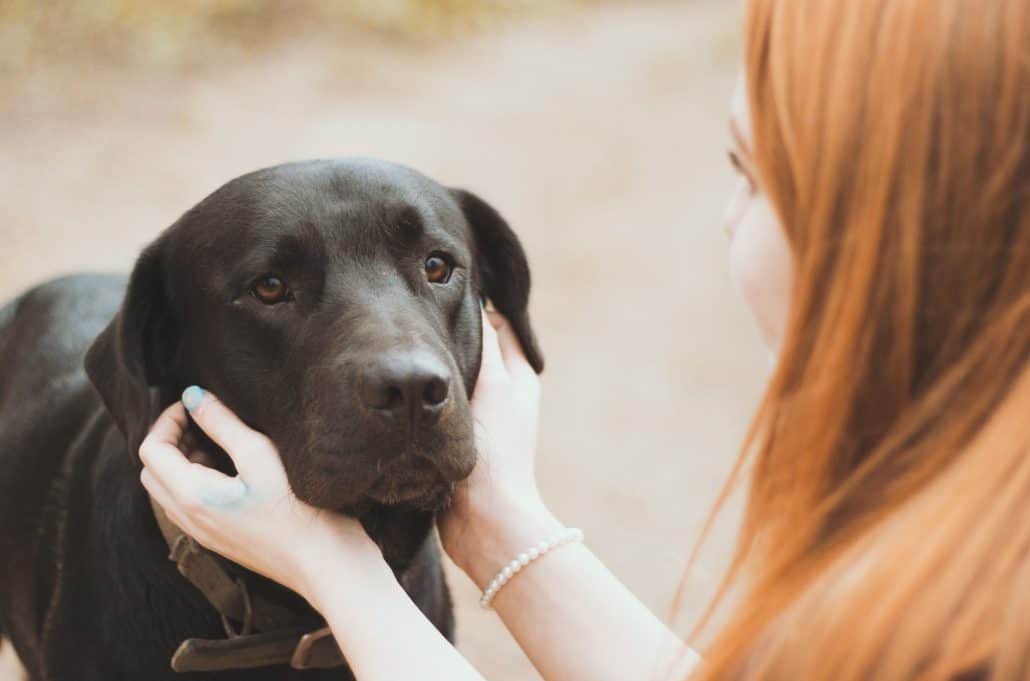Vaccinations – whether you are adopting a brand new puppy or you’re just curious about protecting the health of your long-term canine companion, this is a word you have probably heard before. Whether you are just starting your journey as a pet owner or you are trying to ensure your pet stays healthy and protected from diseases throughout its life, vaccinations are a key component to protecting your pet’s health and wellbeing, from puppy to geriatric ages. Since this is “The Ultimate Guide,” we will be exploring the common questions that pet owners have regarding vaccines when it comes to protecting man’s best friend from harm.
What Are Vaccinations/ Why Are They Important?
Vaccinations are a key component of protecting your pet’s health. Vaccines work in the body by stimulating the immune system through injection of a weakened or killed version of the virus or disease the vaccine is protecting against. By triggering the body to fight this “wimpier” version of the disease, your pet’s body easily combats it, developing immunity and disease-fighting “memory” that can protect them in case they are exposed to the disease in the future. Through vaccinating your dog, you are essentially providing their body with training to fight off infections that could be devastating or fatal without protection.
Vaccines are crucial to protecting the health of our pets. There are many diseases in the canine world that can be devastating or even fatal if contracted. Diseases like rabies, parvovirus, canine distemper, and canine adenovirus can be devastating, difficult (and expensive) to treat. These diseases can cause death or lasting effects on their victims even if treated – especially in young puppies or otherwise compromised patients. The most sickening part about these diseases is the risk of transmission can be greatly lowered by ensuring your pet receives adequate vaccination throughout their lives.
Which Vaccinations Does Your Dog Need?
Vaccinations for dogs can be divided into two categories – core vaccines and lifestyle vaccines. Core vaccines are recommended by the AVMA for every dog to help protect them against common respiratory, gastrointestinal, and neurological diseases. Lifestyle vaccines are used to protect certain populations that fall into “at risk” categories for the diseases they protect against. Your veterinarian can help you decide a customized vaccination schedule and which vaccinations are appropriate for your pet.
Core Vaccines
Core vaccines recommended for dogs are protective against the following diseases:
- Rabies: This disease can be spread through wildlife to pets and humans and is fatal. This vaccination is typically required by state law to be kept up to date.
- Canine Distemper Virus: This disease can be fatal in young puppies and can cause respiratory, gastrointestinal, and neurological signs. If animals survive this disease, they can have lasting neurological deficits.
- Canine Adenovirus-1 (hepatitis) and 2 (respiratory): This disease can cause respiratory and ocular signs as well as bleeding disorders and is greatly preventable by vaccination.
- Canine Parvovirus: This disease can cause devastating gastrointestinal disease and is severely contagious – viral particles can remain in the soil for several years, lying in wait to infect innocent, unvaccinated puppies. This disease is part of the primary reason why veterinarians recommend keeping your new puppy away from public places until their puppy vaccinations are considered complete.
Lifestyle Vaccines
The lifestyle vaccines are decided on a patient by patient basis whether they should be given based on patient lifestyle (boarding/ grooming, environment, and risk. The common lifestyle vaccines include:
- Leptospirosis: This disease is commonly transmitted through ingestion of wildlife urine in contaminated creeks or water sources. If your dog is around creeks, lakes, hikes, swims, or your backyard has wildlife, they may be at risk for this disease.
- Bordetella: This disease is transmitted through respiratory secretions and is commonly spread through contact with other dogs through travel, boarding, or grooming.
- Parainfluenza Virus: This disease is a part of the most common respiratory diseases seen in dogs. If your pet is at risk for bordetella or influenza, parainfluenza may be a worthwhile vaccination to discuss with your veterinarian.
- Influenza Virus: Canine influenza virus is a relatively new respiratory disease that causes flu-like symptoms. If your pet boards, grooms, or travels frequently, this vaccination may be beneficial for your pet.
- Lyme Disease: This disease is commonly transmitted through tick bites and is caused by a bacteria called Borrelia burgdorferi. If your dog is in a highly tick infested area or travels frequently, they may be at risk for this disease.
Are Vaccines Dangerous?
Because the amount of immune stimulation provided by vaccines is much milder than actual exposure to the disease, for most pets the benefits of vaccination far outweigh the risks. Most pets experience little to no issues after receiving vaccinations. The most common side effects seen are:

- Soreness at the injection site
- Lethargy/fever
- Loss of appetite
- Lameness
- Vomiting
- Diarrhea
While most pets experience little to no side effects post-vaccination, rarely, side effects that indicate a more severe reaction can occur. If any of these symptoms occur, contact your veterinarian immediately. These symptoms include:
- Severe vomiting
- Severe diarrhea
- Difficulty breathing
- Hives/facial swelling
- Collapse
- Seizures
If your pet ever experiences a mild or severe reaction, please contact your veterinarian. There are options such as pre-medication to decrease side effects. Vaccination titers can also be used to ensure your pet is adequately protected while minimizing risks. Due to the severe risks of these diseases and the mild risks of side effects post-vaccination, it is highly recommended that your pets be protected with routine vaccination performed by a veterinarian.
How often should I vaccinate my dog?
Your veterinarian will help you to decide an appropriate protocol for vaccination for your pet based on age, risk factors, and other components. The vaccination protocol for a puppy is typically different than an adult dog based on maternal antibodies. Because puppies are developing, after they are born, they obtain baseline immune protection from their mother’s milk that lasts until the end of their puppyhood.
Because of this baseline immune response, it is recommended to vaccinate them multiple times throughout puppyhood to help overcome the maternal immune response and ensure their body develops immunity of its own. Typical vaccination schedules are based on guidelines provided by the individual state, the vaccine manufacturers and the American Veterinary Medical Association.
Puppy vaccines typically include boosters of the core vaccines every 3-4 weeks, starting around 8 weeks of age and ending around 16 weeks. Lifestyle vaccines are typically started within this window and may be boostered multiple times depending on age and risk factors. Rabies vaccines are typically administered close to 16 weeks of age and are boostered at 1 year of age, then every 3 years.
Adult dogs are typically vaccinated annually to every 3 years depending on risk factors of location, lifestyle, environment, and the type of vaccines being administered. Some vaccinations, like rabies, may be boostered less due to adequate immune response. For older dogs or dogs with severe vaccine reactions, vaccine titers can be drawn and measured to assess whether annual vaccination is required to stimulate adequate protective immunity.
Typically, your veterinarian will perform a quality physical exam assessment on your pet to ensure they are healthy enough to receive their annual vaccinations. This is a great opportunity to assess your pet’s health and ensure there are no underlying issues, as well as test for heartworm disease, screen annual blood work, and check a stool sample intestinal parasites.
Vaccinating your pet to help protect them against the diseases described above is an important component of helping your pet live the happiest, healthiest life possible. If you have any questions or concerns about vaccinating your pet, please feel free to call and discuss with one of our veterinarians.

